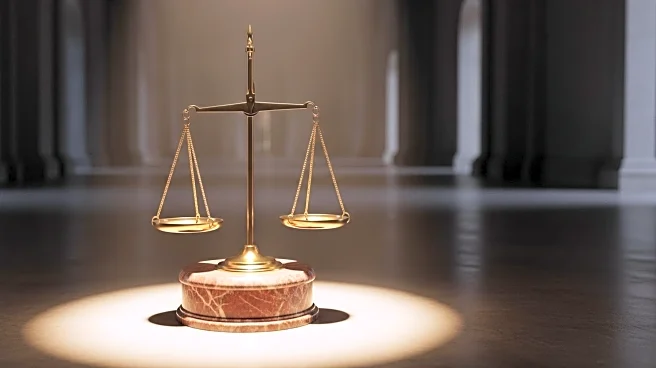What's Happening?
The Federal Reserve, the central bank of the United States, is facing significant pressure from President Trump to reduce its main interest rate from the current target of 4.25% to 4.5% to below 1%. This pressure comes despite the Fed's decision to maintain rates since December last year due to ongoing inflation concerns. President Trump has been vocal in his criticism of the Fed's leadership, particularly targeting its chair, Jerome Powell, and recently attempting to dismiss one of its governors, Lisa Cook. The European Central Bank's head, Christine Lagarde, has warned that undermining the Fed's independence could pose a 'very serious danger' to the global economy, as it could destabilize economic stability in the U.S. and beyond.
Why It's Important?
The independence of the Federal Reserve is crucial for maintaining economic stability and ensuring that monetary policy is not influenced by political pressures. President Trump's push for lower interest rates is aimed at boosting economic growth and reducing government borrowing costs. However, such political interference could undermine the Fed's ability to manage inflation and employment effectively. If the Fed were to succumb to political pressures, it could lead to a loss of confidence in the U.S. financial system, potentially affecting global markets. Stakeholders such as investors, businesses, and international partners are closely monitoring the situation, as any shift in the Fed's policy could have widespread economic implications.
What's Next?
A potential interest rate cut is anticipated later this month, although it is unlikely to meet President Trump's demands for a significant reduction. The ongoing tension between the White House and the Federal Reserve may lead to further political and economic debates. Observers will be watching for any legislative or executive actions that might attempt to alter the Fed's structure or decision-making processes. Additionally, the global economic community will be attentive to any signs of instability that could arise from this conflict.
Beyond the Headlines
The situation raises broader questions about the balance of power between the U.S. government and its independent agencies. The legal framework protecting the Fed's independence could be tested if political pressures continue to mount. This scenario also highlights the potential risks of politicizing monetary policy, which could set a precedent for future administrations. The ethical implications of such interference could lead to discussions about the need for stronger safeguards to protect the Fed's autonomy.









